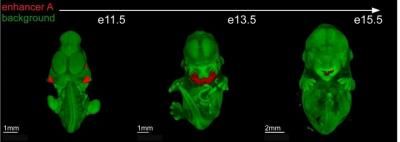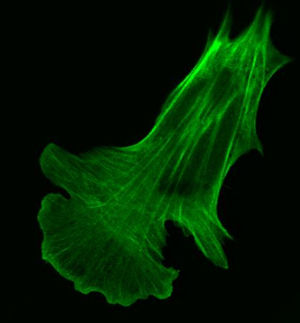New potential application for SUBA-Itraconazole in oncology
Improved anti-fungal drug targets oncology market
HalcyGen Pharmaceuticals Limited can confirm that itraconazole, the active ingredient in HalcyGen's lead drug SUBA-Itraconazole, is a potent inhibitor of the proliferation of endothelial cells. These are the key cells involved in tumour-angiogenesis and related growth of tumours. This finding emerged from the collaborative research agreement with the University of Otago, New Zealand to investigate the anti-tumour activities of the Company's lead product SUBA-Itraconazole.
Research at the Johns Hopkins School of Medicine published last year in the American Chemical Society's Chemical Biology, demonstrated that itraconazole has the ability to inhibit the growth of tumour vasculature (anti-angiogenesis). The physiological process of angiogenesis is important in the body for wound healing and tissue growth, however, it is also important in the transition to malignancy and growth of tumours. Tumours can induce new blood vessels (angiogenesis) to provide nutrients and oxygen essential for tumour growth. Researchers and companies have been searching for many years to find a potent drug that can inhibit or prevent tumour-related angiogenesis as a potential treatment for cancer. Genentech's AvastinÒ, the first anti-angiogenesis drug, is used to treat colorectal cancer.
The successful completion of the initial work at Otago paves the way to evaluating the ability and benefits of SUBA-Itraconazole in inhibiting tumour growth following oral administration.
HalcyGen's SUBA-Itraconazoleäformulation was licensed from Hospira Inc. to treat fungal infections. Under the terms of the license agreement, HalcyGen may pursue and commercialise other clinical applications of SUBA-Itraconazoleä.
Most read news
Other news from the department research and development

Get the life science industry in your inbox
By submitting this form you agree that LUMITOS AG will send you the newsletter(s) selected above by email. Your data will not be passed on to third parties. Your data will be stored and processed in accordance with our data protection regulations. LUMITOS may contact you by email for the purpose of advertising or market and opinion surveys. You can revoke your consent at any time without giving reasons to LUMITOS AG, Ernst-Augustin-Str. 2, 12489 Berlin, Germany or by e-mail at revoke@lumitos.com with effect for the future. In addition, each email contains a link to unsubscribe from the corresponding newsletter.
Most read news
More news from our other portals
Last viewed contents

Experimental insecticide explodes mosquitoes, not honeybees
VAI researchers find long awaited key to creating drought resistant crops - Findings could help engineer hardier plants and have implications for stress disorders in humans

Trends in analysis

Uhlmann Pac-Systeme honored with TOP 100 Award - Manufacturer of pharmaceutical packaging machines wins innovation competition
Nutrigenomics






















































